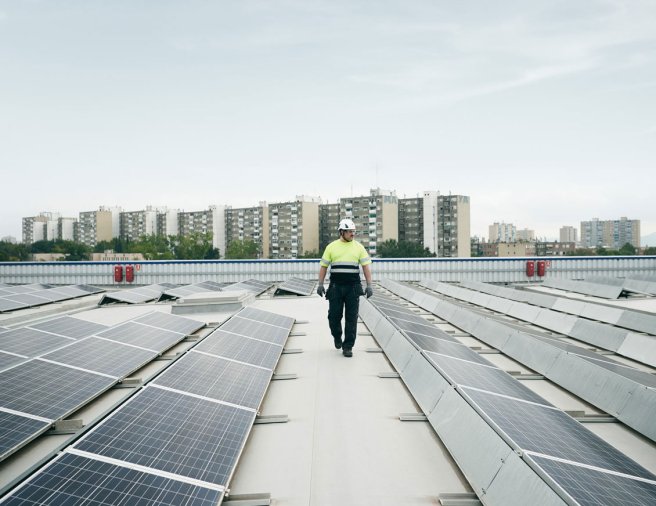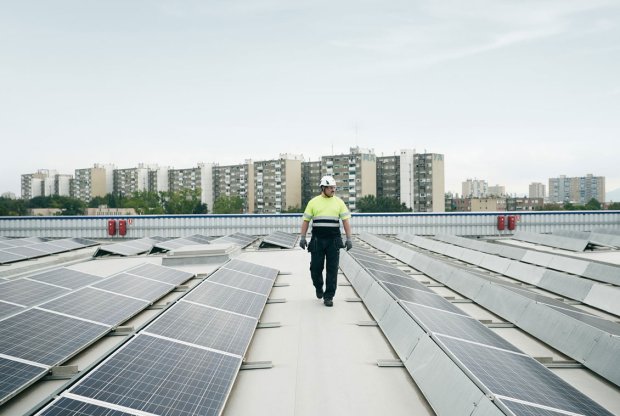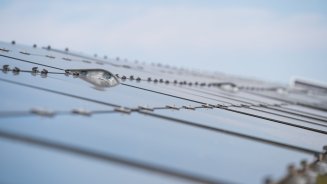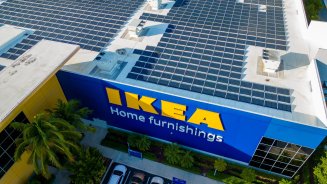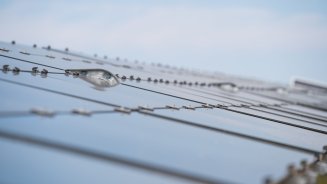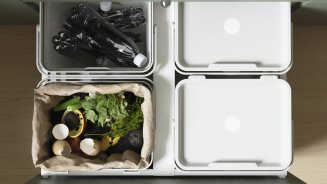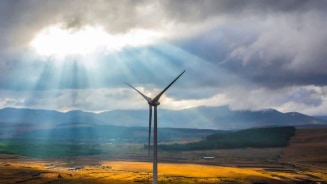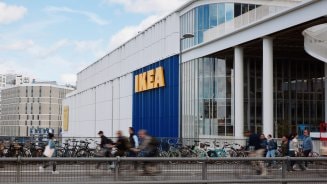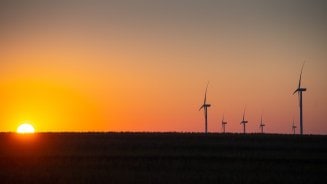The clock is ticking. Two new reports published from the World Economic Forum, show that the business case for investing in climate action is solid, with strong returns*. To avoid the growing costs of climate inaction, up to 7% of annual earnings by 2035 – an impact similar to COVID-19-level disruptions, every two years, business must act now. The reports – one from the Alliance of CEO Climate Leaders, where Ingka Group CEO Jesper Brodin is co-chair, the other in collaboration with leading Earth system scientists – outline how businesses can decarbonize, safeguard nature, and build resilience in the face of mounting climate risks.
“The cost of inaction far outweighs the cost of proactive investments. The transition to a carbon free economy is already here – and it’s unstoppable”
– Jesper Brodin, CEO, Ingka Group
The Alliance of CEO Climate Leaders report, entitled The Cost of Inaction, states that the climate crisis is already having profound effects on the global economy with climate-related damages having surpassed $3.6 trillion since 2000, more than doubling in 20 years. Climate inaction means missing out on opportunities, as the global green economy is expected to expand from $5 trillion in 2024 to $14 trillion by 2030.
“Climate action does not have to come at the expense of economic performance – being resource smart is cost smart is business smart. Since 2016 we have managed to reduce our climate footprint with 24.3% across scope 1,2 and 3, while growing our businesses by 30.9%. Working towards a net-zero society is not only the right thing to do – it is the only sustainable business model for generations to come. It’s crucial that business start the journey to decarbonise or get the support needed to start their journey. The cost of inaction far outweighs the cost of proactive investments. The transition to a carbon free economy is already here – and it’s unstoppable”, says Jesper Brodin, CEO, Ingka Group.
The economic case for decarbonization is better than most may think Industries can reduce 10-60% of their emissions at no or limited additional cost. At carbon prices in line with net- zero requirements, almost all sectors could abate over 50% of their emissions, with some achieving net zero.
The Alliance of CEO Climate Leaders is the world’s largest CEO-led community committed to net zero emissions and represents a combined $4 trillion in revenue, 12 million employees and 12 industries. In September the Alliance announced it had already delivered collectively ~10% emissions reduction from 2019 to 2022, while growing its revenue with 18%, outperforming major economies. This demonstrates the achievable reality of sustainable economic growth – with the right strategies in place, climate action does not have to come at the expense of economic performance.
Two types of climate risks are becoming material for business: physical risks (acute events like floods and chronic issues like sea level rise) and transition risks (e.g., regulatory changes and stranded assets). Together, these risks are reshaping industries, threatening financial stability, and creating urgency for climate action.
“Climate change is now an increasing visible reality impacting all of us each year, and these new reports reinforce that embedding climate risks and opportunities into a business’s decision-making process is not only the right thing to do but a necessity for a thriving business. We have already seen that moving to plant-based food, electrification of transport and transitioning to renewable energy not only enables us to reduce emissions and costs in the long term but also presents new business opportunities,” says Karen Pflug, CSO, Ingka Group.
Since 2009, Ingka Group has invested more than 4 BEUR into renewable energy, which means the company now generates more energy than it needs for its operations. The investments are part of an overall commitment to invest 7.5 BEUR by 2030 and support the transition away from fossil fuels. In parallel, the company recently announced an investment of 1.5 BEUR into renewable heating and cooling and energy efficiency improvements.
Ingka Group is committed to the Paris Agreement and works towards drastically reducing GHG emissions and phasing out fossil fuels in line with its validated Science Based Targets (SBTi) and has reduced its overall emissions by 24.3%, against a 30.9% increase in revenue since its FY16 baseline*.
FOR MORE INFORMATION:
Download and read the full reports here – The Cost of Inaction: A CEO Guide to Navigating Climate Risk
For more information about the Alliance of CEO Climate Leaders (weforum.org)
OPINION: COP29 – Let’s focus on action and stay hopeful
Why we advocate for a net zero world – To read more information on Ingka Group’s climate advocacy and policy asks, please go to the climate advocacy page on Ingka.com here: Climate change advocacy | Ingka Group
*Our total climate footprint (scope 1, 2 and 3) The climate footprint covers greenhouse gas emissions across Ingka Group operations (scope 1 and 2) and our upstream and downstream value chain (scope 3). The 24.3% overall reduction in our climate footprint from FY16 to FY23 was achieved against a 30.9% increase in revenue. The reduction comes primarily from implementing carbon saving measures; however, changes in our business operations and sales have also contributed.
About Ingka Group
With IKEA retail operations on 31 markets, Ingka Group is the largest IKEA retailer and represents about 90% of IKEA retail sales. It is a strategic partner to develop and innovate the IKEA business and help define common IKEA strategies. Ingka Group owns and operates IKEA sales channels under franchise agreements with Inter IKEA Systems B.V. It has three business areas: IKEA Retail, Ingka Investments and Ingka Centres. Read more on www.Ingka.com.
Media enquiries
For further information, journalists and media professionals can contact us at [email protected] or by calling +46 70 993 6376.
